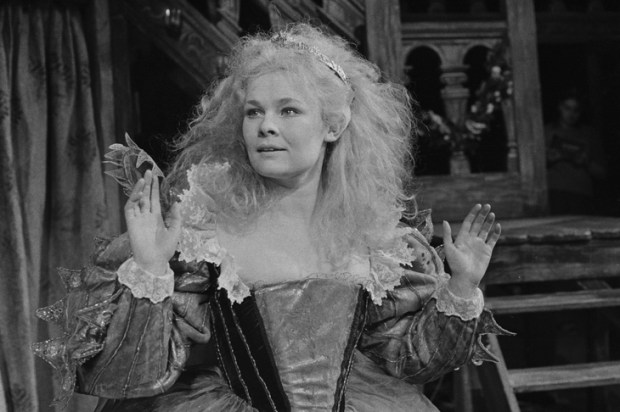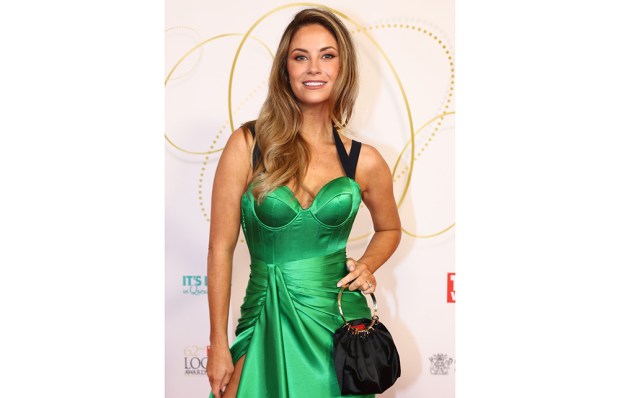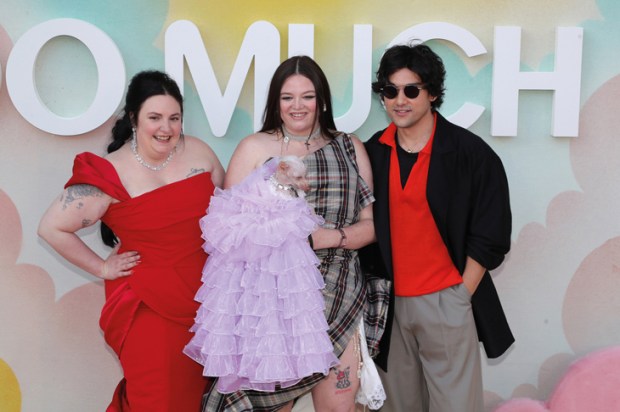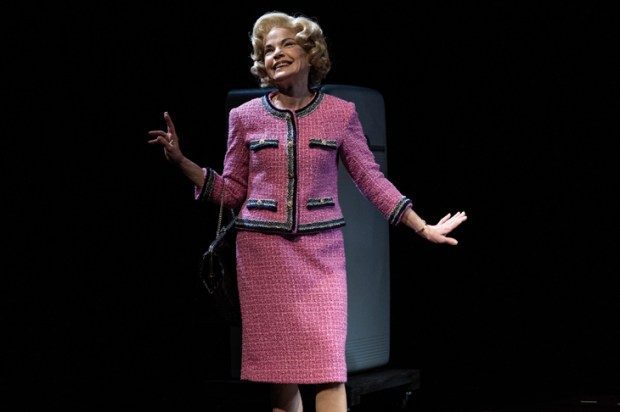It was the night of the Victorian election that might have seen Daniel Andrews fall like Lucifer never to rise again but didn’t. The palpable feeling that a significant fraction of the electorate wanted to vomit him out of their mouths as they had Scott Morrison proved not to be true or not true enough in the right seats that would have seen him ejected entirely or confined to a minority government where he would necessarily have to be much more consultative than he’s inclined to be. A lot of people wondered whether Dan the autocrat would crash or triumph. And there’s not much constructed drama that can compete with the moment very early on when Antony Green declared that Labor would retain government, whether in minority or outright and then, not long after, that they would have a clear majority.
And who could doubt the drama of Andrews himself striding in his lordly stooping way into the Village Green Hotel in Waverley and holding his fists aloft in a blatant gesture of triumph. He cited Keating on doing not what was popular but what was right. If ever a democratic politician looked like a king coming into his kingdom it was Daniel Andrews at this moment. So those of us who had muttered about the inevitable consequences of absolute power were voted down. And God knows if he made the kindergartens free and took over the SEC with half the certitude that he closed down a great city and left the kids stir-crazy he would be as great a man as you could wish for.
Lord Acton the great nineteenth century ‘absolute power’ pundit also said that a great man was usually a bad man. This is no doubt a bit rough on Paul Keating and Daniel Andrews.
But the ABC coverage of the election –apart from the expert David Speers and the uncanny Antony Green – lacked the amoral drama that can make election night discussions among the power lords of politics such a delight because this is when they actually say what they think. Ancient memories of Richo – the man whose motto was ‘whatever it takes’ and who said ‘the mob always gets it right’ – in candid rough and tumble with Michael Kroger, say. Those of us confined to Aunty’s coverage didn’t get to see Jeff Kennett or Steve Bracks or any of the aged pros in candid mode. Shakespeare had a phrase for this kind of banter, ‘here they might take two thieves kissing,’ a remark from Antony and Cleopatra, arguably the most worldly of all his surveys of history and power.
Shakespeare is apparently dazzling everyone in Kip Williams’ Sydney Theatre Company production of The Tempest with Richard Roxburgh as Prospero. Is it simply puritanism and primness to be taken aback to hear that in this version Guy Simon as Caliban – the ‘monster’ who is nowadays seen as the indigenous colonially victimised figure – has been given a speech of Richard II’s. Richard II was Shakespeare’s drama-queen king, arguably his first stab at a Hamlet figure, just as Prospero was a glimmering coda. He could not be more different from Caliban who says, ‘Be not afeared; the isle is full of noises.’
Well, as Brecht used to say, the play is not burnt. And if it’s true that everyone needs to brush up their Shakespeare because no one knows where the great speeches come from any more then perhaps you can have open slather. But it is a bit like putting Beethoven’s Seventh in the middle of his Ninth.
Where does any of this leave chief Buthelezi the great Zulu king who made a deal with Pretoria in return for economic advantages and for a long time opposed the African National Congress and South African independence because it would dissipate Zulu autonomy? He actually plays one of his ancestors Cetewayo in Zulu (1963) the rather magnificent film about Rorke’s Drift which dramatises the British defence against the Zulus in 1879.
It’s a superb ensemble piece which has opening and closing narration by Richard Burton and comes with the tag ‘and introducing Michael Caine’ who flawlessly plays in an impeccably pukka voice a young officer from a very establishment military background. Stanley Baker is the engineer who has come to build bridges, the great Patrick Magee – Beckett’s original Ham in Endgame – is the surgeon who calls them all butchers, James Booth is the ne’er-do-well malingerer who turns into a hero and Jack Hawkins is a Bible-bashing clergyman opposed to war with Ulla Jacobsson as his beautiful daughter.
Zulu is a superb film with a very subtle and understated script as this Welsh regiment keeps seeing thousands of Zulus with their shields and spears advancing towards them with their magnificent lithe bodies, chanting in a way that inspires awe even as it seems the song of doom. Zulu is about as good and as civilised as a war film which is also a film about the defence of Empire could be. There’s a wonderful moment when the Welsh soldiery decide they’ll counter the massive ominous Zulu chorus of war with a rendition of ‘Men of Harlech’ which will bring a tear to the eye of anyone who has ever felt a swelling of pride at the heroism of ‘this sceptred isle’ (which also, by the way, is appropriated by the STC’s Caliban).
There’s also a wonderful moment when what sounds like the final and fatal Zulu chorus turns out to be something else.
Zulu is available in a magnificent print and it’s a grand war film that seems to crystallise and render symbolic the spirit of the World War II movies with a sense of the horror of war as well as the heroism. Would the late great Susan Sontag have thought the thousands of magnificent lean Zulu bodies represented the kind of fascist idealisation she saw in Leni Riefenstahl’s images of African men? Probably.
The fact that the Zulu extras by the thousand are real, not computer generated, has its own glory.
Does it matter that Chief Buthelezi schemed with white racists against Mandela and De Klerk? Yes. But it doesn’t change what a good film Zulu is.
Got something to add? Join the discussion and comment below.
You might disagree with half of it, but you’ll enjoy reading all of it. Try your first month for free, then just $2 a week for the remainder of your first year.













